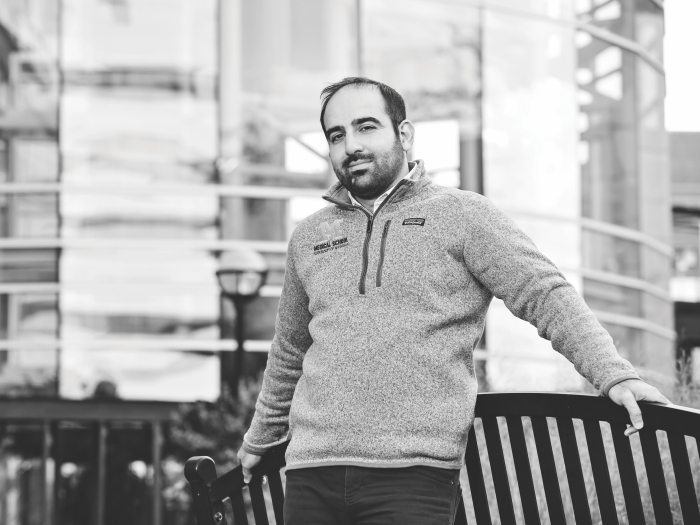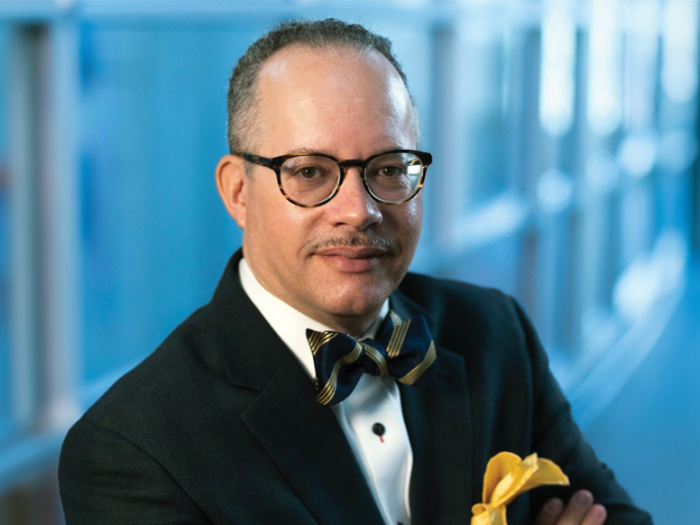As medical trainees get ready to hit the books this semester, a professor and surgeon says not to forget the importance of art and creativity.
9:01 AM
Author |

"When I was growing up everyone told me I was a science guy. Nobody ever said that I was a writer," said Gene Rontal, M.D. "What no one really knew was that I had an imagination."
It was the 1960's and Rontal, a Detroit native and an Ann Arbor student, was taking a full course load to prepare for medical school at the University of Michigan. He was on a track that had little time for music appreciation, art history, or the great books.
After three years of college, four years of medical school, and five years of residency, he became a head and neck surgeon with a private practice and a teaching position in the Department of Otolaryngology-Head and Neck Surgery at Michigan. He said it was liberating when he realized that he finally was on his own and had the free time to explore other interests.
These interests included writing scientific articles, reading books he never had time for and listening to the stories of patients that came to his office. What he didn't realize was his growing awareness of the personal side of medicine. It wasn't until he was telling a colleague about an incident at the hospital that the listener said Rontal should write a book. He said at that moment it was as if someone had unlocked a door he never thought to walk through.
Rontal decided to write a book to entertain and educate readers through a medical story. Still a physician and an adjunct clinical professor of otolaryngology at U-M, the U-M Medical School graduate and alum has published five books. Rontal said he knew when he started that it would be a daunting task to put thoughts and feelings on a piece of paper. What he didn't realize was that by tapping into his creative side, he was able to relate better to the anxiety and uncertainty of his patients.
His latest novel, "A Pre-existing Condition," features a physician protagonist, Ben Dailey, who uncovers a criminal plot to access personal medical records.
Rontal shares reflections from his own career, and tips for students just starting their medical educations, with Michigan Health Lab.
How have you made creativity part of your life?
Rontal: All doctors are creative. They must be to adjust to the myriad of problems they confront, both scientific and emotional. Personally, I've always had an imagination that was stimulated by reading. I just never knew how to use it. The more I read, the more I appreciated how the written word can affect people. Being able to express your thoughts on paper is a satisfying feeling. That creativity carries to over to your patients and the ability to communicate with them.
What did you learn about yourself when you leaned into writing?
Rontal: Since I never had any structural lessons on writing fiction, I had to teach myself the components that go into writing a murder mystery. Luckily, I already knew how to conduct research.
In my latest book, "A Pre-existing Condition," the detective and doctor, Benjamin Dailey, continues to use his medical expertise to stop a criminal attempt to use patient records for financial gain. The fictional character, ex-football player Dailey, was the result of my medical school senior elective where I worked with the orthopedic staff for the U-M football team.
What I learned from my writing experience is that expressing yourself is a great way to discuss your career, talk about people and their problems, and inform the public about the nuances of medicine.Gene Rontal, M.D.
What I learned from my writing experience is that expressing yourself is a great way to discuss your career, talk about people and their problems, and inform the public about the nuances of medicine.
How does this mindset help you become a better doctor?
Rontal: The more I practiced medicine, the more I realized that solving a patient's problem hinged on the ability to talk to people. You don't have to write a book to do that. But understanding a patient's problems can be a challenge. When you write, you deal with the complicated emotions that all people have. In the process, it gives you the background to discuss illnesses from a patient's point of view.
As a career, I don't think there is anything better than the ability to help somebody. But outside of the clinic or operating room, your hobbies and passions will also help fulfill your life.My advice to doctors: if you have "outside-of-medicine talents." don't give them up. That will make you a better doctor.

Explore a variety of healthcare news & stories by visiting the Health Lab home page for more articles.

Department of Communication at Michigan Medicine
Want top health & research news weekly? Sign up for Health Lab’s newsletters today!





